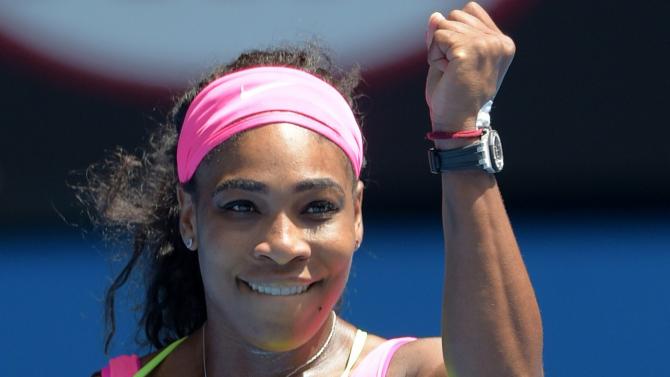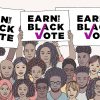
Tennis supernova Serena Williams’ refusal to be subdued and modified within the confines of a traditionally white sport has consistently made her a target of bigotry.
It was on display in 2001 at the Indian Wells tennis tournament in California. Racist slurs and taunts were allegedly hurled at her father, Richard Williams, amid accusations that he had removed Venus Williams from competition at the last minute so that Serena could win. Subsequently, Serena was booed when she stepped foot on the court, and the sting of that hatred burned the then-19-year-old and would remain buried deep within her subconscious for years to come.
“This haunted me for a long time,” Serena Williams writes in a recent op-ed for Time.com. “It haunted Venus and our family as well. But most of all, it angered and saddened my father. He dedicated his whole life to prepping us for this incredible journey, and there he had to sit and watch his daughter being taunted, sparking cold memories of his experiences growing up in the South.”
That disrespect is why Williams had declined to participate in the Indian Wells tournament for the last 14 years. And it is why, against the backdrop of the #BlackLivesMatter movement sweeping the nation, she is returning—to show that she is greater than any verbal and psychological weapons used against her.
Perhaps most important, Williams is partnering with the Equal Justice Initiative, an organization that provides legal representation for individuals who have been denied fair and just treatment in the legal system.
Yes, Williams is leveraging one of the most racist incidents in her career to benefit African-American families who are consistently dehumanized in a legal system that appears hell-bent on using black bodies as fodder for the prison-industrial complex. She is using one of the most noninclusive sports in this country to ensure that people of color have access to the same rights and benefits that this country disingenuously says are ours by default.
The importance of this cannot be overstated.
White supremacy often dictates that blackness be repackaged and sold back to us at market value with the understanding that we should be grateful for the freedom to purchase it. Throughout her career, Williams has refused to be a pawn in that twisted game. She has remained unbought, unbossed and unbound, serving to the beat of her own drum.
“There are some who say I should never go back,” Williams writes on Time.com. “There are others who say I should’ve returned years ago. I understand both perspectives very well and wrestled with them for a long time. I’m just following my heart on this one.
“I play for the love of the game,” she adds, “and it is with that love in mind, and a new understanding of the true meaning of forgiveness, that I will proudly return to Indian Wells in 2015.”
Williams can publicly claim that this was about “forgiveness,” and I’m sure there is some element of that in her decision; but we know that she just Crip-walked all over her haters and naysayers. This is the kind of statement that says, “I’m not selling out or buying into a system that has profited from the labor of African Americans even as racism was allowed to flow unchecked.” This is a statement that says, “I’m coming, but I’m bringing my people with me.”
Because with 19 grand-slam wins, 56 singles titles, 22 doubles championships and several Olympic gold medals under her belt, she has nothing to lose.
Kirsten West Savali is a cultural critic and senior writer for The Root, where she explores the intersections of race, gender, politics and pop culture. Follow her on Twitter.















